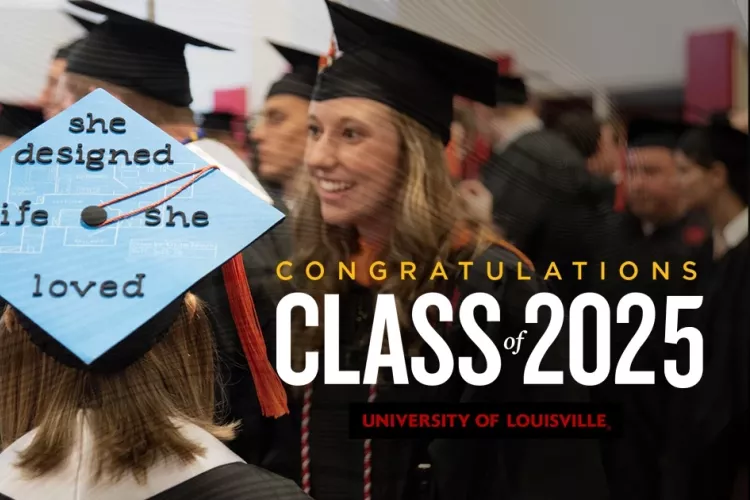UofL economist helps local companies highlight their impact
October 3, 2024
If an organization wants to grow or launch a new project, knowing the impact the business has in the local community can help them build support. The University of Louisville’s Thomas Lambert, associate professor of practice in the College of Business, creates economic impact reports for businesses that paint a picture of their overall value to the community.
These reports can help them secure grants, justify public services, raise funds or improve public opinion. If a company wants to build a new facility, for example, knowing the economic value of jobs and tax revenue the facility will produce may help them secure building permits or tax incentives.
“If you have a vision and you want to estimate what type of splash something is going to have, whether it's building a new factory site or it's a new gaming center, a report like this can help,” Lambert said.
As a faculty member for the College of Business’s Equine Business Program, Lambert has prepared reports on the horse racing industry, the impact of parimutuel wagering, historical horse racing machines and the Kentucky Derby and Churchill Downs for many years. Taxes on wagering help fund UofL’s Equine Business Program, the equine program at University of Kentucky and other organizations that support Kentucky’s horse industry.
“If you're showing that the spending and attendance at the tracks are generating enough revenue, then you're justifying the attention that the equine industry gets because it is one of the signature industries here in Kentucky,” Lambert said.
Lambert's reports, such as the economic and community impact report he recently prepared for Humana Inc., go beyond examining payroll and the business’s spending to document additional jobs, tax revenue, supplier earnings and spending, philanthropy and more.
Laurie Young, director of industry partnerships for the UofL Office of Research and Innovation, has tapped into Lambert’s expertise, connecting him with Humana and other organizations such as Anthem, the metals industry consortium MI2 and the Kentucky Derby Festival (KDF) to provide economic impact reports for those groups.
Lambert’s ability to ferret out less obvious areas of impact adds value to his reports. For example, Humana’s report included the value of volunteer hours and tuition reimbursement spent at local colleges and universities. For KDF, Lambert is calculating money spent by visitors at restaurants and hotels.
With these additional calculations, Lambert’s reports reveal the ripple effects of payroll and spending through the local economy, known as multipliers.
“When a company pays their employees, those employees turn around and spend that money at restaurants and pay their mortgage or rent. So, these other enterprises receive a share of that pay. Then they're going to turn around and pay their employees, their suppliers, etcetera,” Lambert said.
Understanding this downstream impact can magnify the understanding of the organization’s value substantially.
To calculate these multipliers, Lambert uses the computer modeling program IMPLAN, which is provided to UofL with state funding. Using it in this way returns benefit to the state by helping Kentucky businesses grow and attract talent to the commonwealth.
Facilitating economic impact reports is just one way Young engages companies with UofL for research and other services, from business to engineering and beyond.
“I go out and listen to what the companies need and then I collaborate on campus. We're trying to grow industry work across campus and highlight all that UofL has to offer businesses,” Young said.
One collaboration can lead to another. In preparing the economic impact study for KDF, it occurred to Young the group also may benefit from marketing consultation, leading to a project by Henrietta Pepper’s marketing class. The students’ presentation impressed KDF, as well as their consulting firm.
“We're trying to change companies’ perception of UofL,” Young said. “In addition to providing talent, we can do so much more for our community.”
Betty Coffman is a communications coordinator focused on research and innovation at UofL. A UofL alumna and Louisville native, she served as a writer and editor for local and national publications and as an account services coordinator and copywriter for marketing and design firms prior to joining UofL’s Office of Communications and Marketing.



